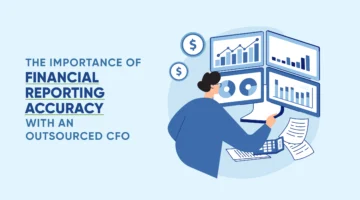Six Steps to Build Credit for Small Businesses
In the same way that individual consumers have to build and manage credit, businesses have credit history and scores that can either enable or inhibit decisions and growth initiatives. Often, small business owners fail to separate their business and personal finances, which can put the business at unnecessary risk. By separating and building your business’ credit, you can more easily qualify for a loan, line of credit, or business credit card. You can similarly create a firewall that protects you and your business from various tax and financial liabilities. This in turn provides an avenue for business management and growth, relieving the pressure for the business owner to come up with funding for supplies, operational expenses, and other assets.
What’s the difference between personal and business credit?
Business credit is, as it sounds, to be used exclusively for business expenses. Though business credit is scored similarly to personal credit by firms such as Equifax and TransUnion, they have different regulations, protections, and lending policies. Business and personal credit are also treated separately—a low business credit score is unlikely to affect the owner’s personal credit—which helps to protect the credit of each entity. (This makes it especially important for the business owner to separate finances from the get-go.) However, many lenders require a personal guarantee of repayment on a business loan, which can potentially lead to the business affecting individual credit. This is especially common with SBA loans. The owner should decide if they’d like to avoid these types of arrangements.
Additionally, not all companies report payment history to business credit in the same way that personal loans are reported to credit bureaus. Similarly, credit limits and the names of creditors are not generally reported. This can stagnate the building of business credit, which is why it’s important to do business with companies that do report payment history.
Six Steps to Build Business Credit
Building business credit can take time, especially if your business is new. However, it should be prioritized, as good credit can help you qualify for loans, take out lines of credit, and secure financing with better terms and lower interest rates. As you review the checklist for building credit, determine what measures you are already taking as well as additional steps you can take to more quickly build your business’ credit.
1. Establish The Business As a Separate Entity
The first step to setting boundaries between your personal and business finances can be achieved by legally establishing your business as a separate entity—whether it be a sole proprietorship, partnership, LLC, C corp, or S corp. Each structure has accompanying tax implications. An outsourced financial consultant can help you determine which structure is best for your business goals and needs.
2. Obtain an EIN From the IRS
The EIN is your federal tax ID. It’s required to not only apply for loans and other lines of credit, but also to pay taxes, hire employees, open a bank account, and apply for business licenses and permits. You can obtain an EIN by applying online through the IRS.
3. Open a Business Bank Account
Opening a business bank account ensures that your personal finances do not become intertwined with your business’. This not only helps to keep your personal credit separate, but is another measure to officially establish your business. Additional steps you can take to set up your business so that it looks professional to both clients and lenders include obtaining a business phone number, address, and professional email address. These details may appear on credit reports.
4. Apply For a D-U-N-S Number
A D-U-N-S number is a nine-digit number issued by Dun & Bradstreet, a company that provides commercial data and analytics for businesses. Lenders often use D-U-N-S numbers to look up a business’ D&B rating, which shows creditworthiness, financial standing, and other information. A D-U-N-S number isn’t the same thing as an EIN, and it isn’t required to operate your business. However, it is highly useful to establish your business’ creditworthiness, obtain government contracts, and have better terms from your vendors and suppliers.
5. Work With Companies That Report Payments
Past payment history is highly useful in demonstrating how likely your company is to make on-time payments in the future. Establish credit with vendors and suppliers that report payments to credit agencies. Paying these vendors consistently and on-time will not only help you to build good relationships, but your business’ credit as well.
Use a credit card, and consistently make on-time payments.
If you qualify for a business credit card, and you have an existing relationship with a bank, opening a credit card within your business account is an excellent step to building credit. Often, you can open a credit card account that does not require a personal guarantee.
With a business credit card comes the responsibility of making on-time payments, which is the most crucial factor that impacts credit scores. Business credit reports use “days beyond terms” to report late payments, and even making a payment a couple of days late can impact your score.
6. Monitor Your Credit Regularly
Checking in on your business’ credit history regularly can not only help you monitor your building progress, but identify any mistakes as soon as they arise. It’s also wise to check your report with more than one major reporting agency.
If you’re unsure of how to improve your credit or apply for additional funding, this is a great area to bring in an outsourced accounting consultant. They can not only help you get your credit where it needs to be, but help you evaluate the best funding options and ensure your financial are in order to meet business goals.



